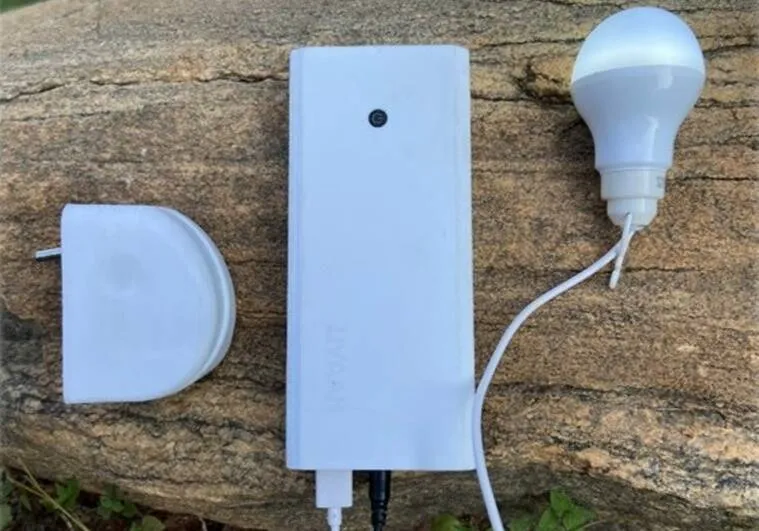This Bengaluru girl is on a mission to make portable energy accessible to all
Prerna Wadikar from Bengaluru was recently awarded the Vice-Chancellors Social Impact Award at the University of Oxford, the UK, for inventing a lithium-ion power battery.
Bengaluru resident Prerna Wadikar aims to make portable energy accessible and affordable to the underserved hit by the pandemic by using it to make their struggle easier.
Recently, she won the Vice-Chancellors Social Impact Award at the University of Oxford, the UK, for inventing a lithium-ion power battery.
Wadikar did her Masters in Public Policy from IIM-Bengaluru and went on to start ‘Jeeva Global’ to support immigrant communities in Oxfordshire.
“It was evident that micro-entrepreneurs were hit the most by the COVID-19 crisis as their survival chances of swift revival were meagre in times of uncertainty. This led to a thought that the push for making energy accessible in an affordable manner would help several street vendors and hawkers in India and other parts of the world accelerate their livelihoods to an extent,” she told the Indian Express.

Image: The Indian Express
The device weighs less than 500 grams, and once charged, it can last for six to eight hours. It closely resembles a power bank.
“This idea first came to me during my work in India and then in Ethiopia and Nigeria, where pushcart vendors are very common. While electric charging is possible in most parts of India, the solar panel was developed keeping in mind other countries where power supply interruptions are rampant,” she added.
The battery is sustainable as it can be charged using solar panels and does not require an electric grid. Its various uses include powering refrigerators for vaccines at primary health centres, lights and small table fans, and electrification of residences in tribal and remote areas.
“We are confident that when the product is manufactured at scale, this will be one of the lowest-priced solar chargeable products in its category internationally. To make it accessible to all, we need the support of both corporate and government sectors,” she told TNIE.
(Written by Vrinda Garg)
Do you have an interesting story to share? Please write to us at social@yourstory.com. To stay updated with more positive news, please connect with us on Facebook and Twitter.
Edited by Suman Singh







